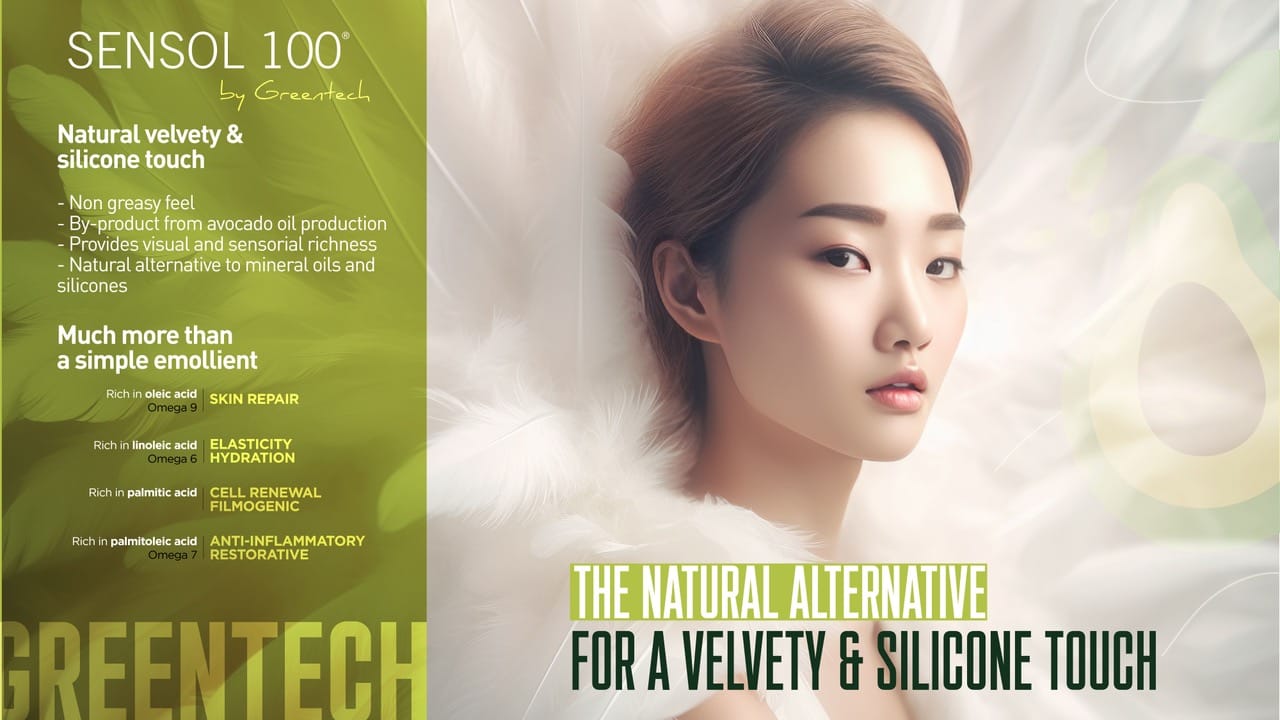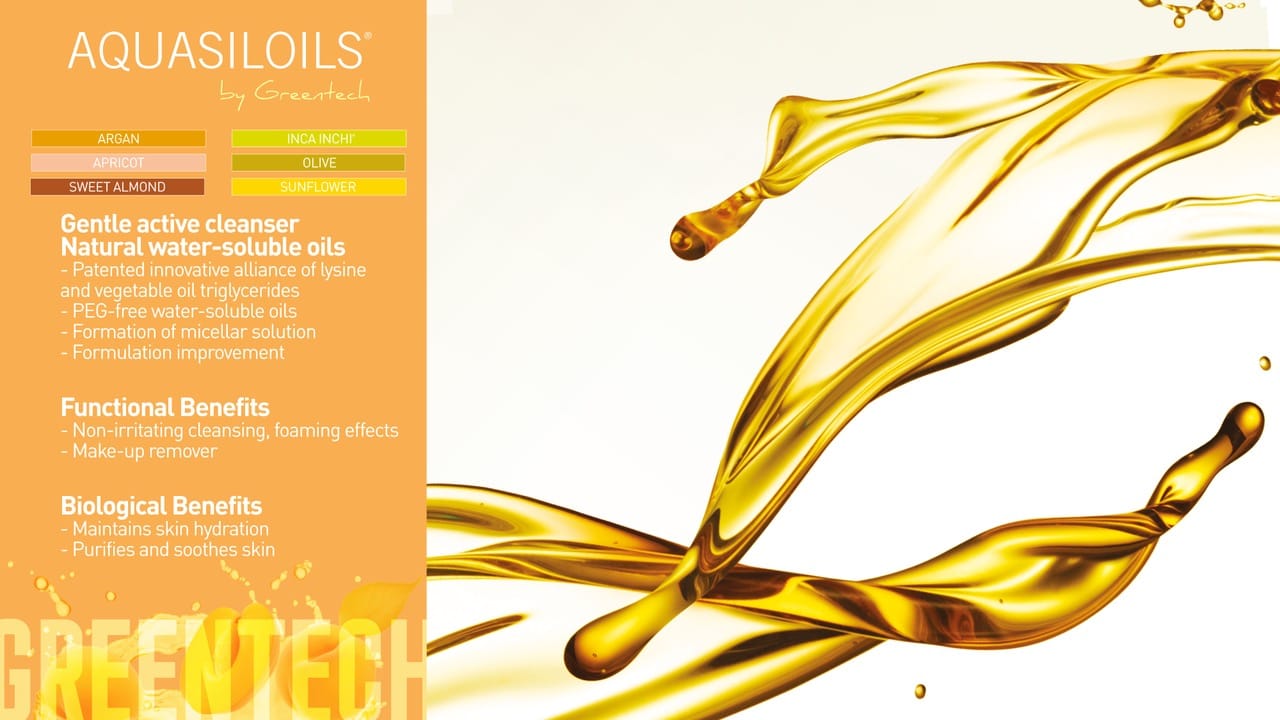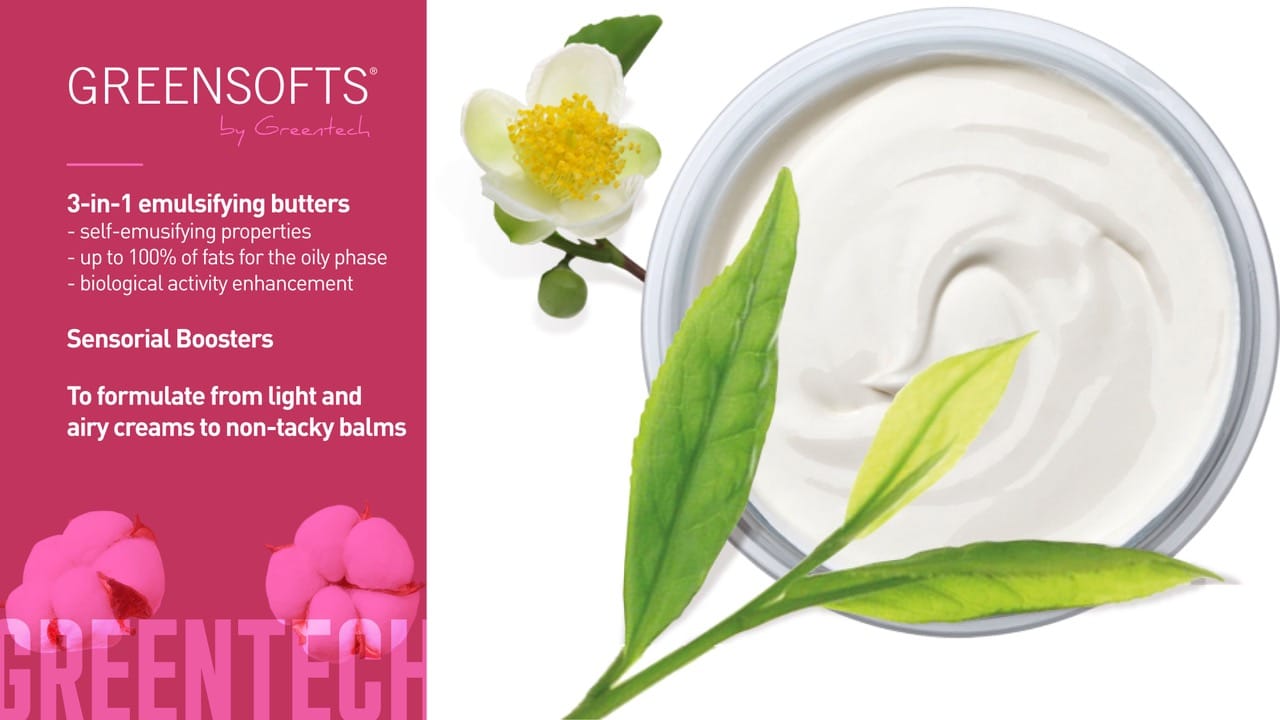
Unveiling a new generation of all-natural and upcycled silicone alternatives with Greentech
In order to answer consumer concerns, the beauty industry has been working hard to reduce harmful effects of ingredients on the environment, as well as avoid toxicity concerns related to human health. More and more brands are turning to natural alternatives to remove controversial substances in beauty, cosmetics, and personal care products.
We know that silicones have gradually been raising concerns among eco-savvy consumers. How are silicones used in cosmetics? And can natural options satisfy both brands and consumers?
Silicones in skincare
Created using a mixture of silicon, oxygen, and other substances, silicones are synthetic polymers that have been largely used in the cosmetics industry for the past 50 years.
Right now, products in this industry count over 300 different ingredients that are either entirely made from silicones, or that contain a percentage of them.
Silicones are listed in the INCI list of cosmetics products, with words ending in “siloxane” or “cone” usually referring to types of silicones.
The properties of silicones
The popularity of silicones is due to a few different factors, including their properties. Silicone-based ingredients can be used:
- As emollients, to soften and smooth the skin
- As emulsifiers, to combine with other substances
- As surfactants, to help better apply and distribute a product
- As thickness factors, to aid with moisture retainment
- As static-controlling ingredients, to reduce frizz (a quality that’s particularly appreciated in the haircare category).
Adding to these, it’s also worth mentioning that silicones are a fairly cheap ingredient for brands and consumers, which makes them even more common.
But at what cost to the planet?
Greentech’s new functional, all-natural silicone alternatives
Greentech, pioneer in ethical biotechnologies for over 30 years, has developed a new line of functional, all-natural silicone alternatives.
Sensol 100® is one of the newest ingredients developed by Greentech. This functional ingredient is an alternative to silicones, providing the silky, velvety feel that silicones are known for.

A by-product of avocado oil production in Kenya (previously intended for use in the biofuels market), it is a patented ingredient and Cosmos-approved. The ingredient is also rich in oleic acid, linoleic acid, palmitic acid, and palmitoleic acid, making it all-natural and incredibly effective.
Sensol® 100 delivers a soft and rich feel, as well as being able to naturally nourish the skin when applied topically, and repair hair fibres when used in haircare formulations.
At a concentration of 5-10%, Sensol 100® can be used in skincare products, such as facial and body moisturisers (including those for dry or damaged skin). At concentrations of 20-30%, it can be incorporated into skin or lip repair balms, as well as makeup formulations.
Thanks to the presence of palmitic acid, Sensol 100® can also prove incredibly effective at repairing and strengthening hair fibres and minimising protein loss, thus finding an important place in haircare formulations, too.
Other innovations from Greentech: Natural, hydrosoluble vegetable oils and butters
Alongside its natural alternatives to silicones, Greentech has also launched a range of natural, non-irritating surfactants – Aquasiloils®. These are PEG-free, hydrosoluble vegetable oils derived from a combination of lysine (an essential amino acid) and triglyceride fats, obtained through advanced biotechnologies.

Thanks to the compresence of lysine and natural fatty acids, Aquasiloils® boast several functional and biological properties – both for the skin/hair/scalp and for the overall formulation. These include:
- Anti-aging properties
- Cleansing properties
- Anti-irritant and anti-inflammatory properties
- Antibacterial properties
Aquasiloils® can be used to:
- Improve the naturality of cosmetics formulations
- Develop gentle products for use in both cosmetics and personal hygiene ranges
- Enhance the natural efficacy of haircare products, including those for scalp care.
Greentech also developed a range of plant-based butters from Greentech. Once again, these products are entirely natural, and offer a great alternative to synthetic ingredients, including silicones. The Greensofts® are the result of the unique combination of three elements:
- A native plant oil
- A hydrogenated plant oil
- A plant-based emulsifier

During the design phase, Greentech focused particularly on the proportion between native vegetable oil and hydrogenated vegetable oil. This enabled the formulator to develop a butter with an almost silky finish with none of the “greasiness” often associated with traditional vegetable butters.
Greensofts® have both functional and biological properties, such as:
- Emulsifying
- Nourishing
- Antioxidant
- Hydrating
- Restructuring
These natural butters create a soft, gentle feel that delivers a pleasant sensory experience.
Key takeaways
Developing effective, luxurious, feel-good cosmetic products shouldn’t mean having to resort to potentially harmful ingredients, such as silicones or synthetic and harsh surfactants. By switching to natural, upcycled alternatives like those recently launched by Greentech, brands across the industry – from personal hygiene to makeup, from skincare to haircare – can achieve efficacious results that impress consumers without harming the environment.

